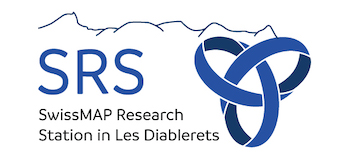Speaker
Description
The physics of strongly correlated systems offers some of the most intriguing physics challenges such as competing orders or the emergences of dynamical composite degrees of freedom. Often, the resolution of these physics challenges is computationally hard, but can be enormously simplified by its formulation in the dynamical degrees of freedom and within an expansion about the physical ground state. Importantly, such a formulation does not only reduce or minimise the computational challenges, it also facilitates the access to the physics mechanisms at play. The tasks of finding the dynamical degrees of freedom and the physical ground state can be systematically addressed within the functional renormalisation group approach with flowing fields which accommodates both, emergent composites as well as the physical ground state.
In the present talk I will discuss how to use this approach for setting up \textit{physics-informed flows} (PI flows): Scale-dependent coordinate transformations in field space induce flowing fields, and the respective flows for the effective action generate a large set of pairs of \textit{target actions}, formulated in emergent composite fields. The potential uses of PI flows are manifold: to begin with, they allow for a systematic search of the dynamical degrees of freedom and the respective ground state that leads to the most rapid convergence of expansions schemes thus minimising the computational effort (lower simplicity bound). Secondly, the resolution of the remaining computational tasks within a given expansion scheme can be further reduced by optimising the physics content within a given approximation. Thirdly, the maximal variability of PI flows can be used for reducing the analytic and numerical effort of solving the flows within a given approximation.

